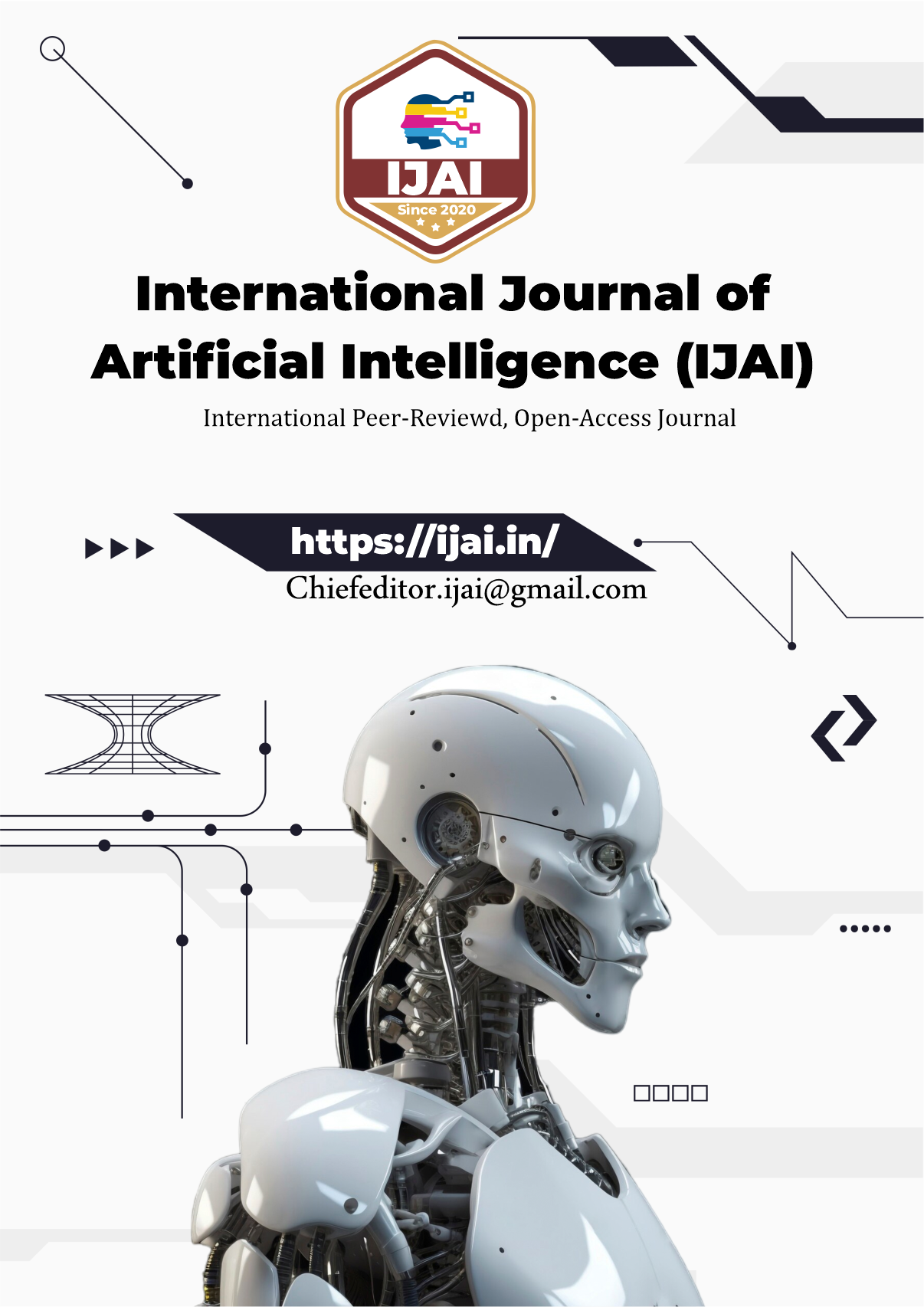Privacy-Preserving Analytical Pipelines Using Differential Privacy and Secure Multi-Party Computation in Federated Cloud Frameworks
Keywords:
Differential Privacy, Secure Multi-Party Computation, Federated Learning, Privacy-Preserving Analytics, Cloud Security, Data Governance, Secure Pipelines, Decentralized ComputingAbstract
The exponential growth of data in cloud-based systems, coupled with rising concerns about data privacy, has spurred the demand for secure, privacy-preserving analytical methods. This paper proposes a federated cloud framework integrating Differential Privacy (DP) and Secure Multi-Party Computation (SMPC) into analytical pipelines. The approach enables collaborative data analytics across decentralized institutions without compromising sensitive information. By combining DP's statistical obfuscation and SMPC's cryptographic protection, the system supports privacy guarantees even in adversarial or semi-honest settings. Evaluation results demonstrate that the proposed design balances utility, privacy, and scalability—making it suitable for sectors like healthcare, finance, and smart governance.
References
Dwork, C. (2006). Differential Privacy. ICALP.
Adapa, C.S.R. (2025). Building a standout portfolio in master data management (MDM) and data engineering. International Research Journal of Modernization in Engineering Technology and Science, 7(3), 8082–8099. https://doi.org/10.56726/IRJMETS70424
Yao, A. (1986). How to Generate and Exchange Secrets. FOCS.
Lindell, Y., & Pinkas, B. (2009). Secure Multiparty Computation for Privacy-Preserving Data Mining. Journal of Privacy and Confidentiality.
Bonawitz, K., et al. (2017). Practical Secure Aggregation for Federated Learning. ACM CCS.
Sankaranarayanan, S. (2025). The Role of Data Engineering in Enabling Real-Time Analytics and Decision-Making Across Heterogeneous Data Sources in Cloud-Native Environments. International Journal of Advanced Research in Cyber Security (IJARC), 6(1), January-June 2025.
Adapa, C.S.R. (2025). Transforming quality management with AI/ML and MDM integration: A LabCorp case study. International Journal on Science and Technology (IJSAT), 16(1), 1–12.
Truex, S., Liu, L., Gursoy, M. E., Yu, L., & Wei, W. (2020). A Hybrid Privacy Preserving Framework for Cross-Silo Federated Learning. arXiv preprint.
Mohassel, P., & Zhang, Y. (2017). SecureML: Secure Machine Learning. IEEE S&P.
S.Sankara Narayanan and M.Ramakrishnan, Software As A Service: MRI Cloud Automated Brain MRI Segmentation And Quantification Web Services, International Journal of Computer Engineering & Technology, 8(2), 2017, pp. 38–48.
Rastogi, V., et al. (2010). Differentially Private Aggregation of Distributed Time-Series with Transformation and Encryption. SIGMOD.
Narayanan, A., & Shmatikov, V. (2008). Robust De-anonymization of Large Datasets. IEEE S&P.
Chandra Sekhara Reddy Adapa. (2025). Blockchain-Based Master Data Management: A Revolutionary Approach to Data Security and Integrity. International Journal of Information Technology and Management Information Systems (IJITMIS), 16(2), 1061-1076.
Mukesh, V. (2024). A Comprehensive Review of Advanced Machine Learning Techniques for Enhancing Cybersecurity in Blockchain Networks. ISCSITR-International Journal of Artificial Intelligence, 5(1), 1–6.
Sankar Narayanan .S, System Analyst, Anna University Coimbatore , 2010. INTELLECTUAL PROPERY RIGHTS: ECONOMY Vs SCIENCE &TECHNOLOGY. International Journal of Intellectual Property Rights (IJIPR) .Volume:1,Issue:1,Pages:6-10.
Gilad-Bachrach, R., et al. (2016). Cryptonets: Applying Neural Networks to Encrypted Data with Homomorphic Encryption. ICML.
Geyer, R. C., Klein, T., & Nabi, M. (2017). Differentially Private Federated Learning: A Client Level Perspective. NeurIPS Workshop.
Abadi, M., Chu, A., Goodfellow, I., McMahan, H. B., Mironov, I., Talwar, K., & Zhang, L. (2016). Deep Learning with Differential Privacy. Proceedings of the ACM CCS, 308–318.
Mukesh, V. (2022). Evaluating Blockchain Based Identity Management Systems for Secure Digital Transformation. International Journal of Computer Science and Engineering (ISCSITR-IJCSE), 3(1), 1–5.
Shokri, R., & Shmatikov, V. (2015). Privacy-Preserving Deep Learning. Proceedings of the ACM CCS, 1310–1321.
Sankar Narayanan .S System Analyst, Anna University Coimbatore , 2010. PATTERN BASED SOFTWARE PATENT.International Journal of Computer Engineering and Technology (IJCET) -Volume:1,Issue:1,Pages:8-17.
McMahan, H. B., Ramage, D., Talwar, K., & Zhang, L. (2018). Learning Differentially Private Recurrent Language Models. ICLR.
Jäschke, A., & Armknecht, F. (2020). Secure Computation in Practice: A Survey of SMPC Libraries. Proceedings of ACM Computing Surveys, 53(4), 1–35.
Mukesh, V. (2025). Architecting intelligent systems with integration technologies to enable seamless automation in distributed cloud environments. International Journal of Advanced Research in Cloud Computing (IJARCC), 6(1),5-10.
Adapa, C.S.R. (2025). Cloud-based master data management: Transforming enterprise data strategy. International Journal of Scientific Research in Computer Science, Engineering and Information Technology, 11(2), 1057–1065. https://doi.org/10.32628/CSEIT25112436
Hu, Y., Sun, Z., Yu, H., Liu, Y., & Kong, L. (2022). Federated Learning with Differential Privacy: Algorithms and Systems. IEEE Internet of Things Journal, 9(2), 1315–1333.
Mukesh, V., Joel, D., Balaji, V. M., Tamilpriyan, R., & Yogesh Pandian, S. (2024). Data management and creation of routes for automated vehicles in smart city. International Journal of Computer Engineering and Technology (IJCET), 15(36), 2119–2150. doi: https://doi.org/10.5281/zenodo.14993009
Kairouz, P., et al. (2021). Advances and Open Problems in Federated Learning. Foundations and Trends in Machine Learning, 14(1–2), 1–210.
Dauterman, P., Phipps, D., & Apon, A. (2022). Resource-Aware Secure Multi-Party Computation for Edge Environments. IEEE Transactions on Dependable and Secure Computing.
Li, T., Sahu, A. K., Talwalkar, A., & Smith, V. (2020). Federated Learning: Challenges, Methods, and Future Directions. IEEE Signal Processing Magazine, 37(3), 50–60








